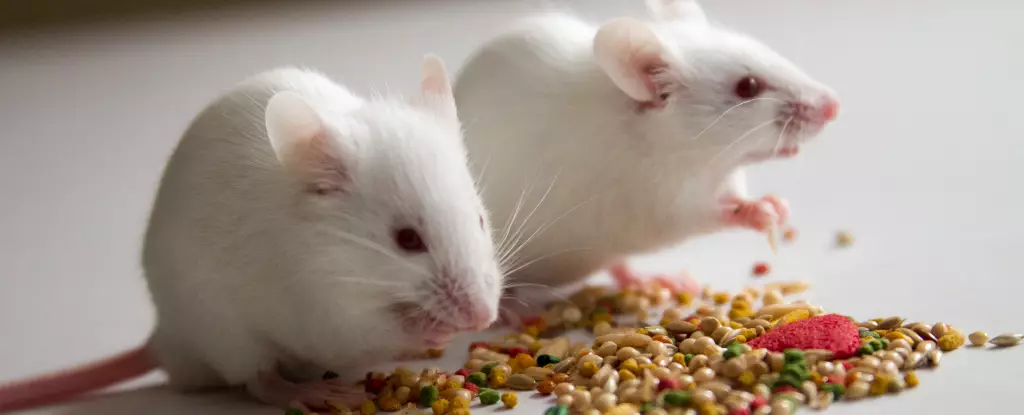Recent animal research has reignited the debate surrounding caloric restriction and its potential benefits for longevity. A significant study involving nearly 1,000 female mice has illuminated the complex interplay between food intake, metabolic processes, and lifespan. The findings indicate that habitual meal postponement and calorie limitation may offer health advantages; however, the details are far from straightforward and come with numerous caveats. As with much of biomedical research, translating these findings from mice to humans involves substantial uncertainties.
The study’s results corroborate a long-standing hypothesis in aging research: reduced calorie intake tends to extend the lifespan of various animal species, including mice, monkeys, and even fruit flies. The implications of these studies are significant, suggesting that a paradigm of intermittent fasting or overall caloric restriction might be beneficial for human health as well. Participants in this research exhibited noticeable metabolic changes while adhering to strict dietary limits. The mice subjected to a high degree of calorie restriction lost almost 25% of their body weight compared to those on a standard diet, who gained weight over time. Furthermore, the heavily restricted mice lived on average 9 months longer than those not on such diets, illuminating a potential lifeline in reduced food intake.
However, these findings are tempered by an essential observation: individual differences within these populations hint at a more complex causal relationship. The study revealed a remarkable variation in lifespan among calorie-restricted mice, challenging the simplistic notion that fewer calories uniformly equate to longer life. This variability suggests that not every mouse benefits equally from caloric restriction, undermining the hypothesis that metabolic regulation or weight loss alone drives longevity.
Crucially, this research reaffirms the significant role genetics plays in determining lifespan. The data indicated that mice retaining higher amounts of body weight tended to survive longer in conditions of high stress, demonstrating that resilience is a crucial factor. Specific genetic markers and immune response characteristics, like the levels of infection-fighting white blood cells, emerged as influential in determining longevity. This emphasizes that resilient individuals, whether mice or humans, might experience distinct advantages that go beyond mere diet. It prompts a rethink of how we approach the concept of health and longevity, considering not just caloric intake but also genetic predispositions and individual resilience.
The insights from mouse studies are critical but require cautious interpretation in human contexts. While intermittent fasting and caloric restriction have gained popularity as potential pathways to enhanced health and longevity, these findings underscore the need for a multifaceted approach to dietary habits. Genetic factors might dictate an individual’s response to calorie intake far more than once thought, urging the scientific community and the public alike to reconsider the one-size-fits-all approach to diets.
Furthermore, the findings highlight the complexity of biochemistry and biology in aging. While superseding the normal caloric intake may pose risks, moderate and well-structured dietary restrictions could indeed be beneficial, potentially improving health markers such as weight management and metabolic health. Encouraging individuals to focus solely on caloric intake could overshadow other crucial elements of health, such as mental well-being and physical activity.
The relationship between caloric intake and lifespan is intricate and multi-dimensional, weaving in genetic, metabolic, and biological factors. While the potential of caloric restriction as a strategy for enhancing longevity remains compelling, it is essential to approach the subject with a nuanced perspective. Emphasizing overall health, resilience, and balanced dietary habits may be a more effective strategy for increasing lifespan and improving quality of life than merely cutting calories. As research continues to evolve, the true benefits of dietary patterns, genetic predispositions, and metabolic health will undoubtedly provide richer insights into the science of living longer and better.


Leave a Reply